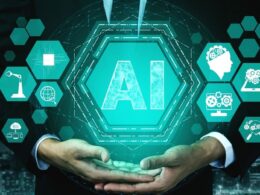As Artificial Intelligence (AI) systems become increasingly prevalent in various industries, the need for effective monitoring has become important.
Artificial Intelligence Monitoring is a critical aspect of ensuring the responsible and ethical deployment of AI technologies, as it helps to identify and help potential risks and challenges associated with these powerful systems.
Table of Contents
What is Artificial Intelligence Monitoring?
AI Monitoring: A Definition
AI monitoring refers to the process of continuously tracking, evaluating, and managing the performance, behavior, and outputs of AI systems. It involves monitoring various aspects of AI systems, such as accuracy, fairness, safety, and security, to ensure they function as intended and align with ethical principles and regulatory requirements.
Importance of AI Monitoring
The importance of AI monitoring cannot be overstated. As AI systems become more complex and are deployed in high-stakes domains, such as healthcare, finance, and transportation, the potential consequences of AI failures or biases can be severe.

AI monitoring helps to identify and mitigate these risks, ensuring that AI systems operate reliably, fairly, and safely.
Key Areas of Artificial Intelligence Monitoring
Monitoring AI Performance
One of the primary areas of AI monitoring is performance monitoring, which involves tracking the accuracy, precision, and efficiency of AI models and algorithms.

Accuracy and Precision
Monitoring the accuracy and precision of AI systems is crucial to ensure they provide reliable and meaningful outputs. This includes evaluating the performance of AI models on various datasets, identifying potential biases or errors, and implementing corrective measures when necessary.
Scalability and Efficiency
As AI systems become more complex and handle larger volumes of data, monitoring their scalability and efficiency is essential. This involves tracking resource utilization, and processing times, and identifying potential bottlenecks or performance issues.
Monitoring AI Bias and Fairness
Another critical aspect of AI monitoring is ensuring that AI systems are fair and unbiased, particularly in domains that can significantly impact individuals or groups.
Algorithmic Bias
AI algorithms can inadvertently exhibit biases due to the data they are trained on or the inherent assumptions and biases in the training process. Monitoring algorithmic bias involves analyzing the outputs of AI systems for potential discrimination or unfair treatment based on factors such as race, gender, or age.
Data Bias
Data bias refers to systemic biases or imbalances in the datasets used to train AI models. Monitoring data bias involves evaluating the training data’s quality, representativeness, and potential biases, and taking steps to mitigate these issues.
Monitoring AI Safety and Security
Ensuring the safety and security of AI systems is crucial, particularly in domains where they interact with the physical world or handle sensitive data.

Robust and Secure AI Systems
Monitoring AI safety involves assessing the robustness of AI systems against potential adversarial attacks, such as data poisoning or model evasion.
It also includes monitoring for possible failures or unexpected behaviors that could lead to harmful outcomes.
Ethical AI Monitoring
In addition to technical aspects, AI monitoring also encompasses ethical considerations to ensure that AI systems align with societal values and principles. This includes monitoring for potential privacy violations, fairness, or accountability, and implementing mechanisms to uphold ethical standards.
Artificial Intelligence Monitoring Tools and Techniques
To effectively monitor AI systems, a variety of tools and techniques are employed, ranging from specialized software platforms to advanced data analytics and visualization methods.
AI Performance Monitoring Tools
AI performance monitoring tools, such as TensorFlow Extended (TFX) and Weights & Biases, provide comprehensive solutions for tracking model performance, evaluating metrics, and detecting anomalies or performance issues.
AI Fairness and Bias Monitoring Tool
Tools like IBM AI Fairness 360 and Google’s What-If Tool are designed specifically for monitoring AI bias and fairness. These tools analyze AI outputs for potential discrimination, identify root causes of bias, and provide guidance for mitigating issues.
AI Safety and Security Monitoring Tools
AI safety and security monitoring tools, such as IBM AI Factsheets and Microsoft’s Counterfeit, focus on assessing the robustness and security of AI systems against potential threats or vulnerabilities. These tools help identify and mitigate risks related to adversarial attacks, data poisoning, or model evasion.
Challenges and Best Practices in AI Monitoring
While Artificial Intelligence monitoring is crucial, it also presents several challenges that must be addressed to ensure its effectiveness.
Data Quality and Governance
Ensuring the quality and integrity of the data used for AI monitoring is essential. Poor data quality can lead to inaccurate or misleading monitoring results, undermining the entire process.

Implementing robust data governance practices and establishing clear data lineage is crucial.
Interpretability and Explicability
Many AI systems, particularly deep learning models, can be complex and opaque, making it challenging to interpret and explain their decisions or outputs.
Developing interpretable and explainable AI systems and techniques for model interpretability is crucial for effective monitoring and understanding of potential issues or biases.
Continuous Monitoring and Adaptation
AI systems are not static; they can change and evolve as new data is introduced or models are retrained. Continuous monitoring and adaptation are essential to ensure that AI systems remain reliable, fair, and secure throughout their lifecycle.
Real-World Applications of AI Monitoring
AI monitoring is crucial in various real-world applications where AI systems are deployed in high-stakes domains.
Healthcare and Medical AI
In healthcare, AI monitoring is essential for ensuring the safety and reliability of AI-powered diagnostic tools, treatment recommendation systems, and medical imaging analysis. Monitoring AI performance, bias, and safety in these domains can have life-or-death consequences.
Financial Services and Fraud Detection
AI systems are increasingly used in financial services for tasks such as credit risk assessment, fraud detection, and investment decision-making.

Monitoring these AI systems for fairness, accuracy, and compliance with regulatory requirements is crucial to maintain trust and mitigate potential financial risks.
Autonomous Vehicles and Transportation
Autonomous vehicles and transportation systems rely heavily on AI for perception, decision-making, and control. Monitoring the safety, reliability, and robustness of these AI systems is critical to ensure the safe operation of autonomous vehicles and prevent accidents or incidents.
Future of Artificial Intelligence Monitoring
Emerging Trends and Technologies
As AI technology continues to evolve, new trends and technologies are emerging in the field of AI monitoring.

These include the use of advanced machine learning techniques for anomaly detection, the integration of blockchain for secure and transparent monitoring, and the development of explainable AI models for improved interpretability.
Ethical and Regulatory Considerations
The increasing adoption of AI systems has also led to growing concerns around ethical and regulatory considerations. Governments and organizations are actively developing guidelines and frameworks to ensure the responsible and ethical deployment of AI technologies.
AI monitoring will play a crucial role in adhering to these guidelines and demonstrating compliance with ethical principles and regulatory requirements.
Conclusion
AI monitoring is a critical aspect of ensuring the responsible and ethical deployment of AI technologies. By continuously monitoring AI systems for performance, bias, safety, and security, organizations can mitigate risks, build trust, and unlock the full potential of AI while upholding ethical principles and societal values.
As AI continues to evolve and be integrated into various domains, the importance of AI monitoring will only grow, driving the development of more advanced tools, techniques, and best practices.
FAQs
What are the main areas of AI monitoring?
The main areas of AI monitoring include performance monitoring (accuracy, precision, scalability, and efficiency), monitoring for bias and fairness (algorithmic bias and data bias), and monitoring for safety and security (robustness, adversarial attacks, and ethical considerations).
Why is AI monitoring important in healthcare and medical applications?
AI monitoring is crucial in healthcare and medical applications because AI systems in these domains can have life-or-death consequences. Monitoring the performance, bias, and safety of AI-powered diagnostic tools, treatment recommendation systems, and medical imaging analysis is essential to ensure patient safety and reliable outcomes.
What are some challenges in AI monitoring?
Some key challenges in AI monitoring include ensuring data quality and governance, addressing interpretability and explainability issues in complex AI models, and implementing continuous monitoring and adaptation as AI systems evolve.
How can AI monitoring contribute to ethical and responsible AI deployment?
AI monitoring plays a crucial role in upholding ethical principles and ensuring the responsible deployment of AI technologies. By monitoring AI systems for potential biases, safety concerns, and ethical violations, organizations can identify and mitigate risks, build trust, and demonstrate compliance with ethical guidelines and regulatory requirements.
What are some emerging trends and technologies in AI monitoring?
Emerging trends and technologies in AI monitoring include the use of advanced machine learning techniques for anomaly detection, the integration of blockchain for secure and transparent monitoring, and the development of explainable AI models for improved interpretability.









